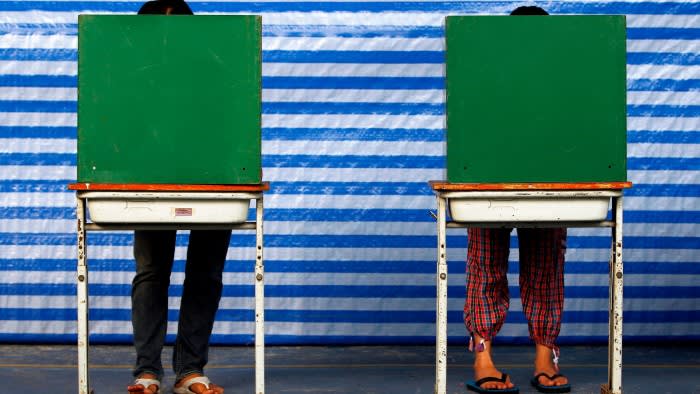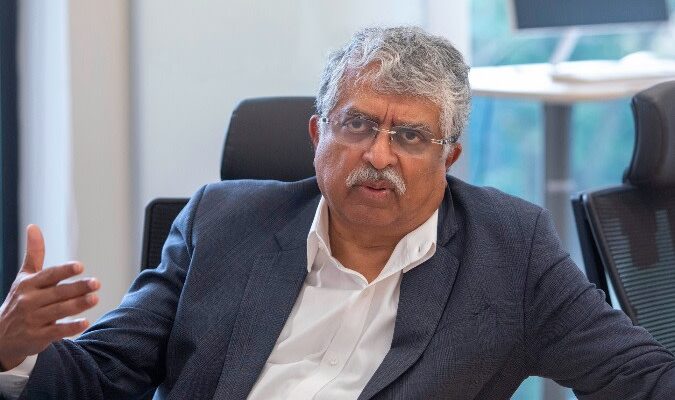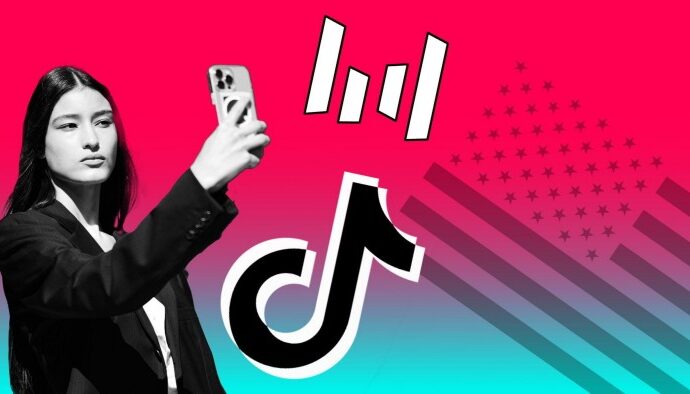
Unlock the Editor’s Digest for free
Roula Khalaf, Editor of the FT, selects her favourite stories in this weekly newsletter.
From Taiwan and Russia to South Africa and the US, more than 40 countries will hold elections in 2024, involving about half of global adults. Yet the paradox of this great year of public ballots is that it is taking place in the midst of a “democratic recession” — a nearly two-decade retreat, overall, in political freedoms.
This paradox reflects the fact that democracy is about more than voting. Open, competitive elections allowing citizens to choose who governs them are an essential condition of a free society. But not the only condition. Respect for human rights, rule of law and checks and balances including robust institutions and independent media are also indispensable. By these measures, freedom is in retreat or on the defensive in much of the world, though not everywhere. Democrats should not despair.
The watchdog Freedom House found global freedom shrank in 2022 for the 17th consecutive year. The gap between the number of countries registering declines in political and civil liberties and those that made improvements was, however, the narrowest in all of this period. Some 35 countries, from Burkina Faso and Tunisia to Nicaragua and Russia, went backwards. But 34 made advances, including Lesotho, Malaysia, the Philippines and Colombia.
In 2024, some elections will confirm democracy’s vitality. Taiwan’s presidential and legislative contests this month will provide a sharp counterpoint to China’s authoritarian one-party system. In South Africa, the ruling African National Congress could conceivably fail to secure a majority for the first time since apartheid ended in 1994.
By contrast, Russia’s largely performative presidential election in March will anoint Vladimir Putin to another six-year term, putting him on course potentially to reign longer than Joseph Stalin. Iran will also hold parliamentary elections in March — but officials have already disqualified more than a quarter of the candidates who applied to run.
India’s general elections, expected to start in April, will highlight that competitive electoral politics are not a sufficient guarantee of liberty. Prime Minister Narendra Modi and his ruling Bharatiya Janata party have curbed freedom of expression and stoked tensions with India’s Muslim minority.
Guardrails of democracy are under threat, too, in many advanced economies — from populists promising simplistic or illusory solutions to voters’ grievances on issues such as immigration and inequality. Some populist leaders, notably on the right, have a record once elected of undermining institutions to keep hold of power, claiming to be the true voice of the “people”.
The extraordinary prospect looms that Americans may re-elect as president a man whom US prosecutors have charged with trying to overturn the result of the 2020 election. Donald Trump’s return to the White House would be perilous for democracy in the US and, given America’s role as leader of the free world, around the globe.
In the EU, hard-right and anti-establishment parties are set to make gains when voters elect a new European parliament in June — though opinion polls suggest mainstream centre-right and centre-left parties will remain the two largest groups. In Austria, the frontrunner in this year’s election is the extreme-right Freedom party. A party with the same misleading name came first in Dutch elections in November.
The movement is not all one way. In Poland, a liberal coalition led by former premier Donald Tusk won back power from the illiberal Law and Justice party. It will fall to democrats in many other countries in 2024 to do what they can to keep civic institutions and guardrails alive long enough for liberal democracy to move back into the ascendancy.


